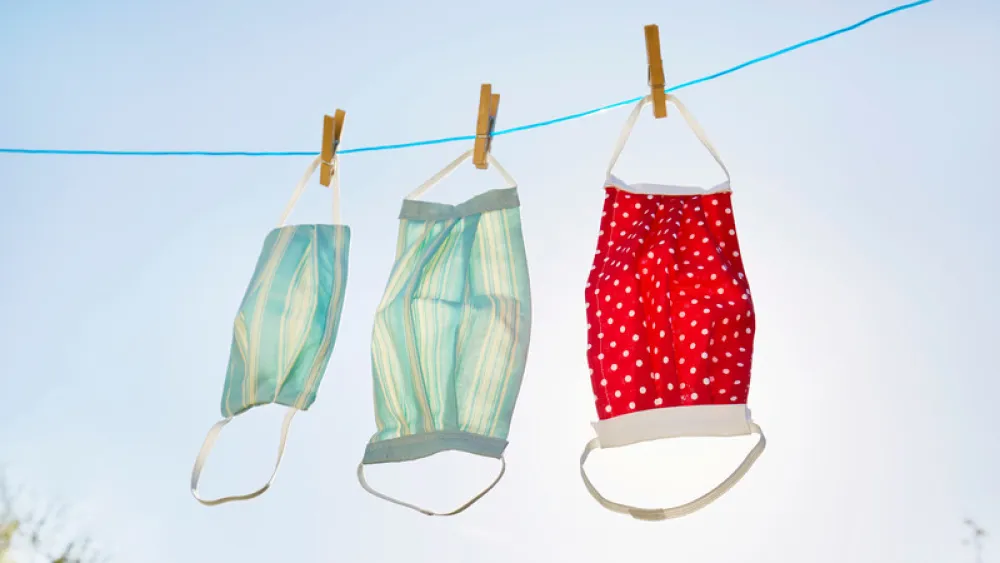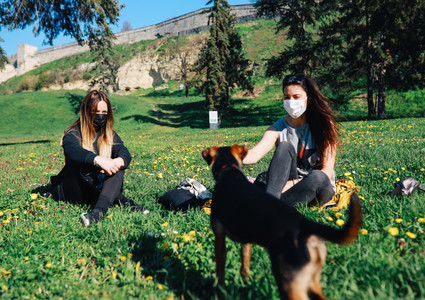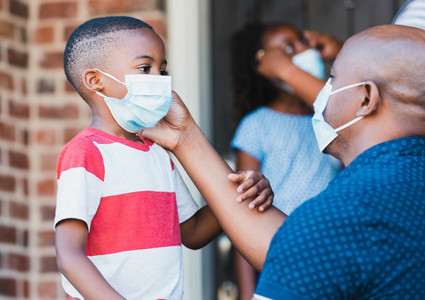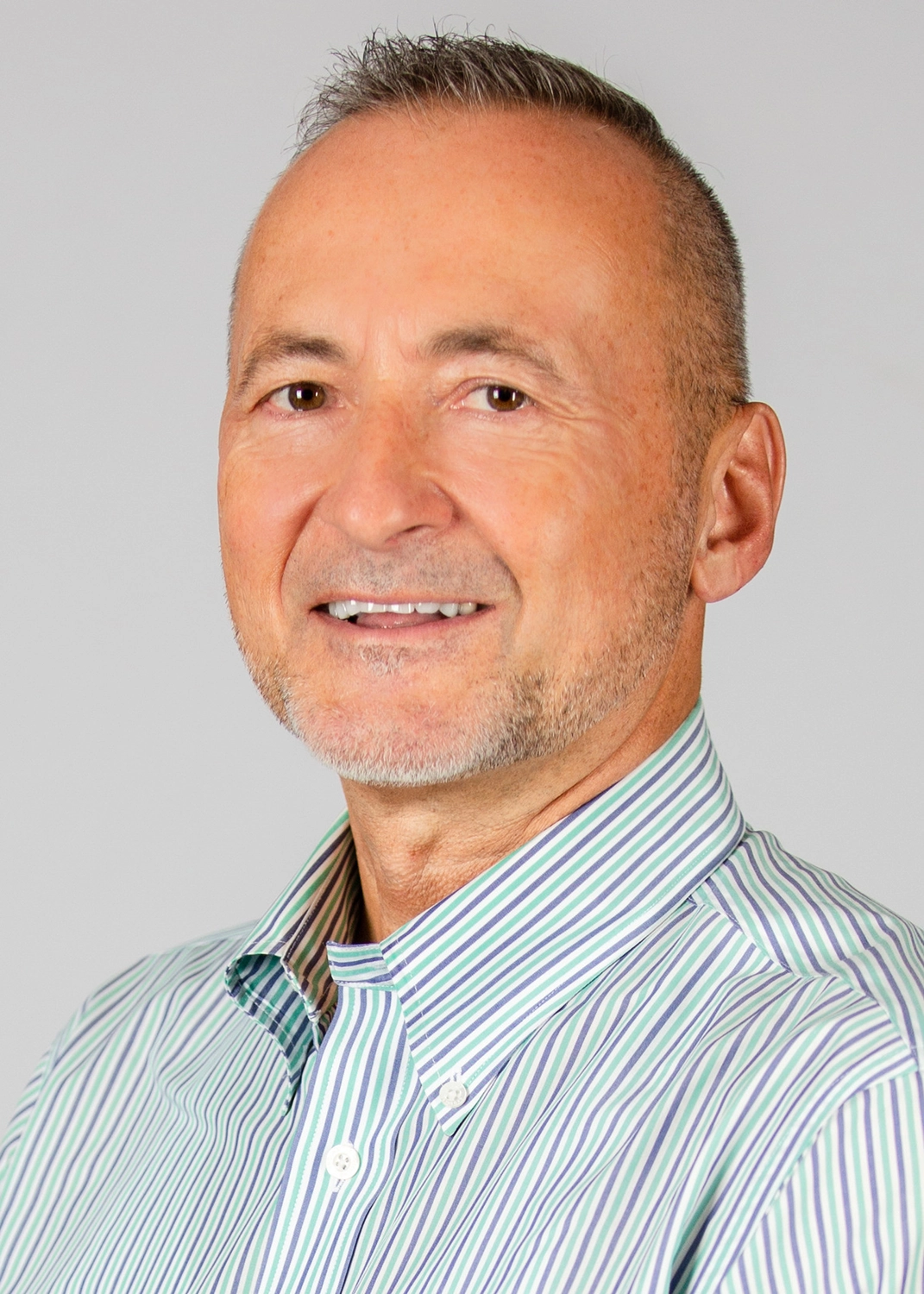Today's Medicine
10 Masking Myths Busted
Published: Aug. 5, 2020

Masking Myths
MYTH: Cloth masks don’t protect anyone.
We know that one way COVID-19 is spread is when respiratory droplets from an infected person are passed on through sneezing, coughing or talking. A cloth mask will block many of those droplets from being projected and being inhaled by someone. A recent analysis found that masking results in an 80-85% reduction in COVID-19 transmission. And if you wear any mask, you’re less likely to touch your nose and mouth and spread viral particles with unwashed hands. Remember that masks are only effective if they cover your nose and mouth. Keep masks clean – wash cloth masks with soap and water and let them dry completely when you’re done using them for the day.
MYTH: Wearing a mask doesn’t protect me. It only protects other people.
The best protection is when everyone is masking. But wearing a mask even when others don’t still offers protection. Masking will block some of the larger respiratory droplets expelled by a non-mask wearer. You could still become infected by touching your face with unwashed hands, so continue practicing good hand hygiene, but a mask will at least offer a barrier for your nose and mouth.
MYTH: I only need to wear a mask if I feel sick.
The most recent estimate from the Centers for Disease Control and Prevention (CDC) is that 40% of people with COVID-19 don’t feel any symptoms. Asymptomatic individuals can still spread the virus to healthy people. Because there’s no way to tell who is and isn’t infected in many cases, we all need to wear masks to keep each other safe.
MYTH: By wearing a mask, I don’t need to socially distance.
Masking is just one of our tools in slowing the spread of COVID-19. It’s not a substitute for social distancing and hand hygiene. A recent study showed that wearing a mask and practicing social distancing are more effective when done together instead of one or the other. A mask won’t block 100% of viral droplets, and there is increasing evidence that COVID-19 can be spread through the air. That’s why social distancing, avoiding indoor spaces and staying away from large groups are still important.
 MYTH: I don’t need to wear a mask outside.
MYTH: I don’t need to wear a mask outside.
Being outside lowers the risk of transmission, but it doesn’t eliminate it. If you’re outdoors without a mask in an area with few people, your risk of contracting COVID-19 is lower. However, your risk increases based on different factors: Are you in a busy area where it’s hard to keep social distance? Are you exercising with people who are not in your household? Are you at an outdoor gathering? As your risk grows, so does the need for you to wear a mask – even outdoors.
MYTH: I don’t need to wear a mask if I’ve already recovered from COVID-19.
Even if you’ve recovered from COVID-19, you still need to wear a mask. Unfortunately, we don’t yet know enough about COVID-19 and immunity. One study found that antibody levels began dropping in infected individuals as soon as three months after recovery. Until we know more about immunity, everyone should continue to mask to prevent reinfection.
MYTH: A mask will increase the amount of carbon dioxide I’m breathing and cause my oxygen levels to drop.
Cloth and surgical masks are not tight-fitting enough to block airflow. There is no danger of breathing in exhaled carbon dioxide and not receiving enough oxygen. Health care workers have masked for decades without suffering carbon dioxide poisoning. Masks can take some time to get used to, but that doesn’t mean you’re breathing in less oxygen. Experiment with finding a cloth mask that fits you best. Limiting your talking and breathing through your nose will help reduce humidity levels in your mask. And if you do need a break, go outside or to an isolated space before removing it.
MYTH: Wearing a mask will weaken my immune system.
There’s no evidence that healthy adults need constant exposures to maintain their immune systems. And with or without a mask, our immune systems are exposed to billions of bacteria in and outside of our bodies that keep our immune systems stimulated daily.
 MYTH: We can’t expect children to wear masks.
MYTH: We can’t expect children to wear masks.
It’s true that many children will struggle to wear a mask, including children with intellectual disabilities, mental health conditions and sensory sensitivities. And masking for children under 2 is not recommended. Those children who can’t consistently mask should avoid being around other people. But normalizing masking for our children is essential. More children are being infected with COVID-19, some are developing a rare secondary disease called Multisystem Inflammatory Disease in Children, and there is mounting evidence that children play a significant role in the spread of COVID-19.
You can help your children adjust to mask-wearing by:
- Setting an example and wearing a mask yourself
- Talking about why masking is important and how it keeps people safe
- Keeping it fun by letting them pick out their own mask colors and designs
- Making mask-wearing a regular habit
MYTH: The best way to get people to mask is to shame them.
Shaming people for not wearing a mask is actually an ineffective public health tool. People get defensive when they feel like they’re being attacked, and they may just continue risky behavior behind closed doors. Shaming also makes it harder for contact tracers – people are less likely to tell the truth if they fear repercussions.
Making people feel good about participating in a social norm is better than making people feel bad about not wearing a mask. When you see someone isn’t wearing a mask, draw on your empathy. If you’re going to ask them to mask, choose kindness over aggression. Offer a solution by carrying extra masks. If you have a family member or a friend who doesn’t mask, pick up the phone and call them instead of attacking them on social media. Remember that everyone is scared – for their health, their families, their jobs, their futures. Together, we can make masking become the norm and help everyone realize that it’s a kind and simple way to contribute to the greater good.
More Resources
- Get advice on navigating back-to-school during COVID-19.
- Read what we know now about COVID-19 and pregnancy.
- Learn how well checks keep your kids healthy.


